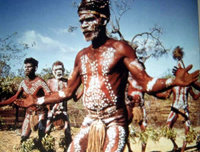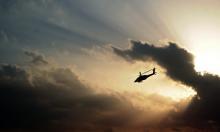Australia apologizes to the ‘lost generation’
Aborigines organized breakfast barbecues in the Outback, schools held assemblies and giant TV screens went up in state capitals as Australians watched a live broadcast of their government Wednesday apologizing for policies that degraded its indigenous people.

In a historic parliamentary vote that supporters said would open a new chapter in race relations, lawmakers unanimously adopted Prime Minister Kevin Rudd's motion on behalf of all Australians.
"We apologize for the laws and policies of successive parliaments and governments that have inflicted profound grief, suffering and loss on these our fellow Australians," Rudd said in Parliament, reading from the motion.
The apology is directed at tens of thousands of Aborigines who were forcibly taken from their families as children under now abandoned assimilation policies.
"For the pain, suffering and hurt of these Stolen Generations, their descendants and for their families left behind, we say sorry," the motion said. "And for the indignity and degradation thus inflicted on a proud people and a proud culture, we say sorry."
Aborigines remain the country's poorest and most disadvantaged group, and Rudd has made improving their lives one of his government's top priorities.
In 2002 data collected on health status reported that Indigenous Australians were twice as likely as non-indigenous people to report their health as fair/poor and one-and-a-half times more likely to have a disability or long-term health condition (after adjusting for demographic structures). In 1996-2001, the life expectancy of an Indigenous Australian was 59.4 years for males and, in 2004-05, 65.0 years for females, approximately 17 years lower than the Australian average.
According to the 2001 Census, an Indigenous Australian is almost three times more likely to be unemployed (20.0% unemployment) than a non-Indigenous Australian (7.6%). The difference is not solely due to the increased proportion of Indigenous Australians living in rural communities, for unemployment is higher in Indigenous Australian populations living in urban centres (Source: ABS). The average household income for Indigenous Australian populations is 60% of the non-Indigenous average.. Indigenous Australians are 6-fold more likely to be homeless, 15-fold more likely to be living in improvised dwellings, and 25-fold more likely to be living with 10 or more people.
Indigenous Australians gained the unqualified right to vote in Federal elections in 1962, but it was not until 1967 that they were counted in the population for the purpose of distribution of electoral seats. Only two Indigenous Australians have been elected to the Australian Parliament, Neville Bonner (1971-1983) and Aden Ridgeway (1999-2005). There are currently no Indigenous Australians in the Australian Parliament.
ATSIC, the representative body of Aborigine and Torres Strait Islanders, was set up in 1990 under the Hawke government. In 2004, the Howard government disbanded ATSIC and replaced it with an appointed network of 30 Indigenous Coordination Centres that administer Shared Responsibility Agreements and Regional Partnership Agreements with Aboriginal communities at a local level.
In October 2007, just prior to the calling of a federal election, the then Prime Minister, John Howard, advocated a referendum to recognise Indigenous Australians in the Constitution. Reaction to his surprising adoption of the importance of the symbolic aspects of the reconciliation process, was mixed. The ALP supported the idea. Some sections of the Australian public and media suggested it was a cynical attempt in the lead-up to an election to whitewash Mr Howard's poor handling of this issue during his term in office. David Ross (Central Land Council) said "its a new skin for an old snake."
Subscribe to Pravda.Ru Telegram channel, Facebook, RSS!





